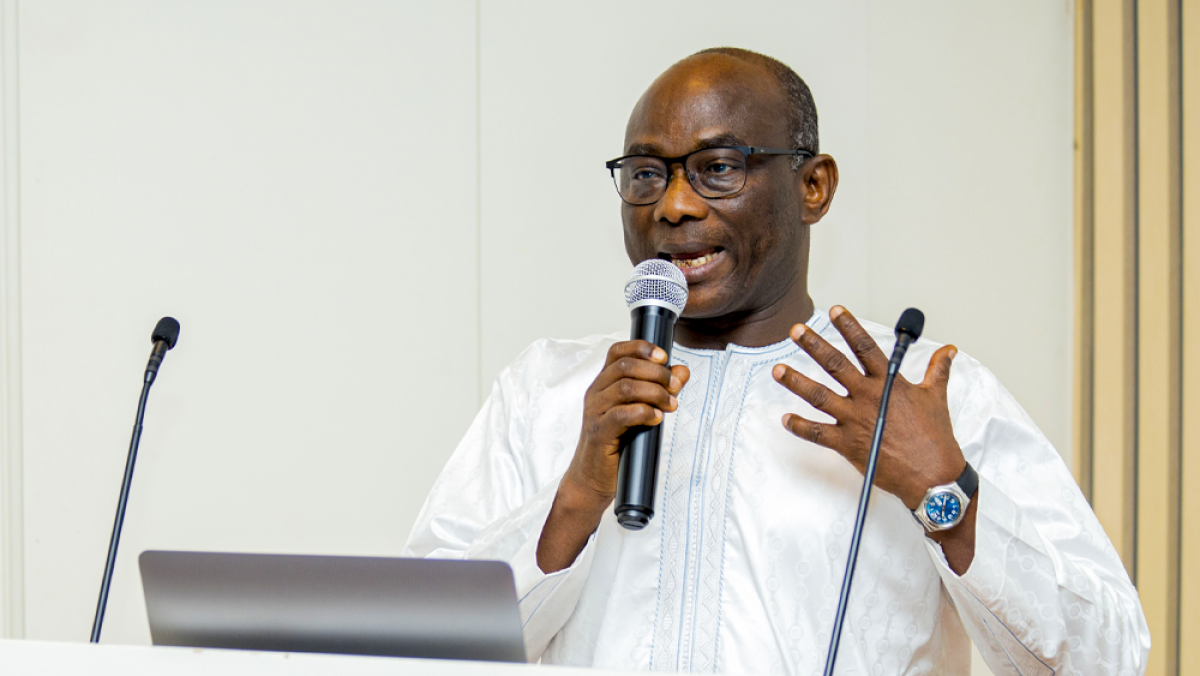
The 4th Indicative Cooperation Programme between Niger and Luxembourg is now underway

ICP IV (Indicative Cooperation Programme) for 2022–2026 between Luxembourg and Niger was launched in Niamey on 3 February. Its stakeholders will have four years to implement it.
Almost a year to the day after the signing of the memorandum of understanding of the first ICP programme drafted by ADA on strengthening inclusive finance in Niger called the ‘Financial Inclusion Development Programme’ (PADIF), representatives of Luxembourg’s Directorate for Development Cooperation and the government of Niger gathered again to officially launch ICP IV for the period from 2022 to 2026. This new ICP will help develop human capital and strengthen inclusive governance in Niger. In the meantime, the memorandum of understanding for the other four components developed by LuxDev was signed in July 2022.
Financial inclusion as a key lever for socioeconomic development and poverty reduction
The specific objective of the PADIF – under ADA’s responsibility through this ICP – is to improve access to financial services for vulnerable communities and members of the agricultural sector, especially women and young people in rural areas. This programme will contribute to Sustainable Development Goals 1 ‘No poverty’, 2 ‘Zero hunger’, 5 ‘Gender equality’, 8 ‘Decent work and economic growth’, 10 ‘Reduced inequalities’, and 17 ‘Partnerships for the goals’. With a budget of EUR 15 million, the programme will be implemented by ADA in close collaboration with LuxDev.
ADA’s course of action

In accordance with the PADIF, ADA will focus on three pillars of financing:
- Funding for financial inclusion: microfinance institutions (MFIs) in Niger lack long-term funding and the resources needed to offer vulnerable people financial products and services tailored to their needs. ADA will therefore support the Executive Secretariat of the National Inclusive Finance Strategy (SE-SNFI) in increasing the capacity of Niger’s viable MFIs and in rehabilitating those in difficulty to eventually render them eligible for funding from the Inclusive Finance Development Fund (FDIF) managed by the SE-SNFI. In concrete terms, this means that ADA will build their internal capacities (governance, human resources, risk management and product development) and financial capacities (financing arrangements and mechanisms, insurance and guarantees). This will create the right conditions for fostering financial inclusion as professional, successful MFIs will be able to offer financial and non-financial services which are tailored to the needs of vulnerable people;
- Agriculture financing: MFIs in Niger lack adequate funding to offer tailored agricultural financial products and services, whether to deal with issues such as high production risks, market instability or lack of collateral. ADA, an expert in inclusive finance and a catalyst for partnerships, will support the Food and Nutrition Security Investment Fund (FISAN) in devising and implementing procedures and supervisory frameworks. ADA will also support the establishment of partnerships with local financial institutions and technical support structures such as incubators and accelerators to facilitate the creation of a financing facility for MFIs. This will enable women and young people to acquire the necessary skills for developing their agricultural projects and to qualify for financing. At the same time, ADA will experiment with innovative risk management solutions for the MFI beneficiaries of LuxDev’s ‘Employment and Employability’ programme. These possible solutions include micro-insurance through a mobile app or connecting different insurance industry actors through a digital platform.
- Financing for SMEs and SMIs: small and medium-sized enterprises/small and medium-sized industries (SME/SMI) often face significant challenges because few financial service providers understand their needs and offer them suitable services. They are perceived as high-risk clients because of their lack of collateral. ADA will therefore support the National SME/SMI Support Fund (FONAP), LuxDev’s new partner and supervisor, in developing and establishing financing solutions for formal SMEs and SMIs of a certain size operating in agricultural value chains. This solutions include guarantees for these SMEs and SMIs and interest rate rebates.
These activities are possible thanks to the support of a dedicated ADA team based in Niamey.
Towards an autonomous development of the inclusive finance sector in Niger
The support of ADA and LuxDev will end upon completion of the ICP in December 2026. Local financing providers should then take over the provision of financing to vulnerable and rural populations independently. This will promote their professional integration and the creation of long-term jobs.